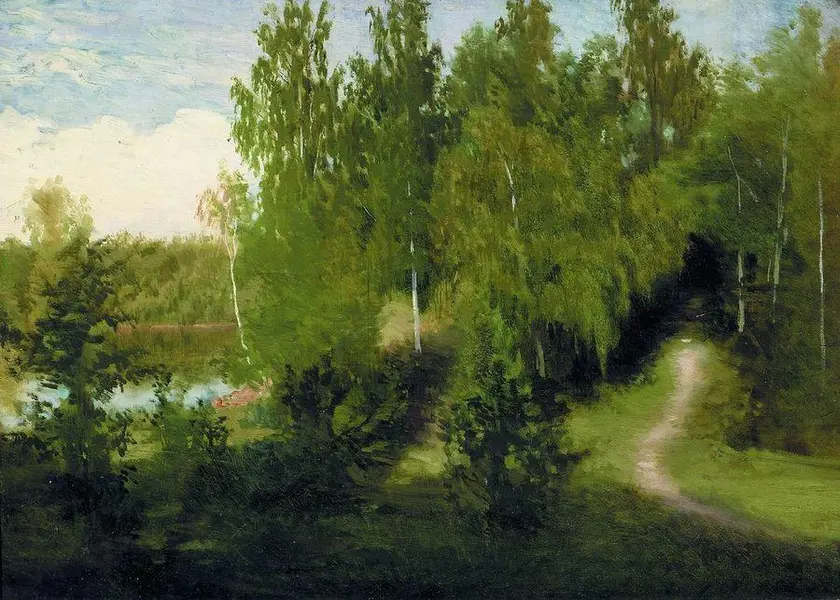The road to change is paved with suffering
 Forest path, Ivan Kramskoy, 1870
Forest path, Ivan Kramskoy, 1870
To make a change we have to suffer. What can we do about it?
To live is to suffer, to survive is to find some meaning in the suffering.
— Frederich Nietzsche
Making a change involves giving up something we already have, and then replacing it with something new. As adults, our lives are already 'full'. We can't add something new into our lives without first removing something else - we are already making full use of the 24 hours in each day. Even if there are things we wish we didn't do, we have to remove or reduce those behaviours before we can add a new behaviour in. Giving up our current behaviour is a sacrifice.
To sacrifice something we currently have, causes suffering. What we already have is known and certain. Something new is uncertain, and while we hope it is an improvement, it could be worse - a mistake. Giving something up is a death of part of us, a part of our identity. A death of a small part of us is better than the death of the whole, but even so it is still painful. This is the barrier to change, the activation energy we have to overcome.
This cost cannot be avoided, only delayed into the future with accrued interest. We can voluntarily make a change when we see a good opportunity to do so, or we will eventually be forced into action by our circumstances. Living things cannot remain in stasis because our environment is constantly changing. If we attempt to be static, the pain caused from the mismatch between our behaviours and the environment becomes greater and greater - until we either make a change that increases our alignment or we give up altogether.
The other part of suffering comes about because we have to embrace the uncertainty of the new, which we prefer to avoid. Uncertainty puts us in a heightened state of awareness - expending energy to be wary of unexpected negative outcomes in a novel situation. But if we channel this energy in the right way, it can be used positively to accelerate us forward. This part of suffering can be avoided, and in fact used to overcome the activation energy of the change.
We can either make small frequent changes, or more infrequent bigger ones. Big changes come with larger amounts of suffering and are more difficult to navigate. More frequent changes gives us more of a feeling of instability. We can only change one thing at a time, so there is a limit to how quickly we can change. It's unclear if this limit is above the point of negative utility from changing too frequently, or just an illusion from our aversion to instability 1.
Are there any strategies we can use to minimise the suffering we experience navigating changes?
If we consider ourselves in the steady state to have a fixed amount of free energy to be directed towards any cause2, we should use some of that towards reflection - taking a holistic view of the changes we are making,and thinking about whether these are the best places to be investing our limited energy.
We should embrace the new with excitement and hope. While we still need to be cautious, we should be courageous in trying new things. Even if we end up back where we started, we have learnt something about ourselves for the future exploration we must do. Excitement about the new can flip the second half of the activation energy of a change from a net negative to a net positive where we actually receive energy from it! This makes it much more likely for us to try something, much sooner.
Another way to reduce the activation energy is to reduce the scope of the change, which makes the activation energy smaller. At a certain point, the cost becomes so low it's negligible. The trick here is our ego can get in the way, and block us from taking on seemingly trivial changes. We have to maintain humility in the situation, taking on minute changes because we know things can rapidly snowball in our favour.
We can also change our mindset about suffering. We shouldn't view pain as a purely negative force that should be avoided at all costs. We cannot avoid it, and to a certain extent should embrace it in helping us realise when we are in a significant mismatch from our environment.
In our suffering, we find the energy to grow.
Our aversion to change likely varies with personality traits like openness, so this set point would vary on an individual basis - some people will naturally change 'too often', and others 'too little'.
Perhaps an invalid assumption, but a discussion for another time!